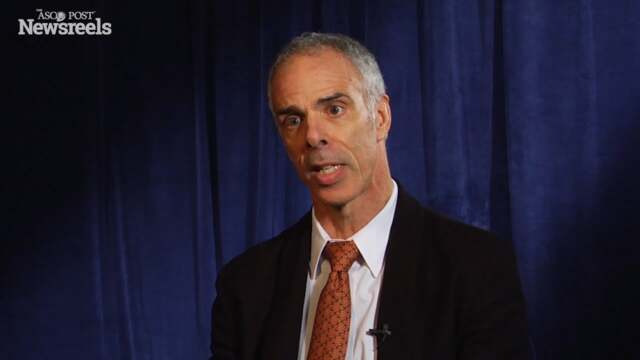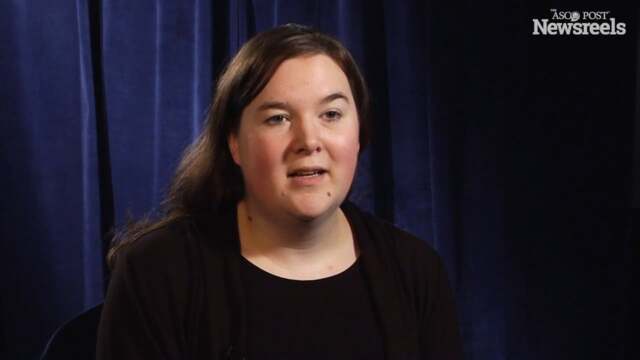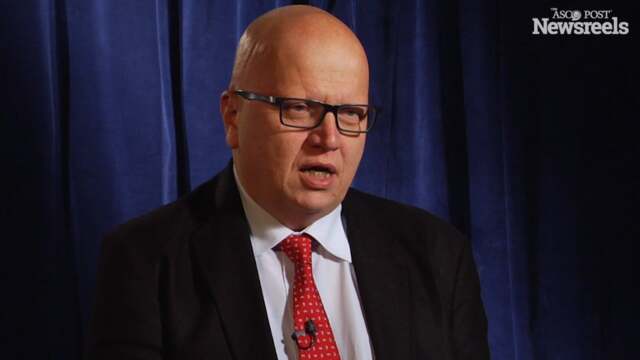Leonard Gunderson, MD, on the Presidential Symposium Lecture on Upper and Lower GI Cancers
2015 ASTRO Annual Meeting
Leonard Gunderson, MD, of the Mayo Clinic College of Medicine, discusses PET/CT imaging in upper and lower gastrointestinal cancers, which can be of value as a baseline study prior to treatment, in determining the degree of response to treatment, and in helping decide whether there is a relapse after a complete response to treatment.
Anthony Zietman, MD
Anthony Zietman, MD, of Massachusetts General Hospital, discusses his perspective on the study of bicalutamide during and after radiotherapy in patients following radical prostatectomy and a biochemical relapse (Abstract LBA5).
Bridgett Harr, CNP
Bridgett Harr, CNP, of Cleveland Clinic, discusses the advanced practice nurse follow-up clinic, which focuses on symptom management in the first 90 days postchemoradiation (Abstract 3169).
Robert Kuske, MD
Robert Kuske, MD, of Arizona Breast Cancer Specialists, discusses the evaluation of more than 1,300 patients with accelerated partial-breast irradiation via multicatheter interstitial brachytherapy, focusing on toxicity and cosmetic outcomes (Abstract 133).
Howard M. Sandler, MD
Howard M. Sandler, MD, of Cedars-Sinai Medical Center, discusses this phase III noninferiority study comparing two fractionation schedules in patients with low-risk prostate cancer (Abstract LBA6).
Vratislav Strnad, MD, PhD
Vratislav Strnad, MD, PhD, of the University Hospital in Erlangen, discusses results from a European study comparing accelerated partial-breast irradiation using brachytherapy, to the standard treatment of whole-breast irradiation for women with low-risk breast cancer (Abstract LBA7).





